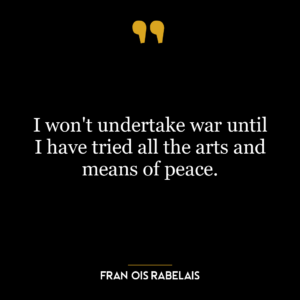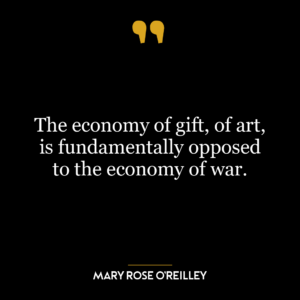This quote implies that the act of winning a war, or overcoming a conflict, is not the end of the journey. Instead, it is the beginning of another crucial phase, which is organizing the peace. The notion of ‘organizing the peace’ means establishing a state of harmony, stability, and prosperity after the conflict. It involves ensuring that the reasons that led to the war do not recur, and that the parties involved coexist peacefully and fruitfully moving forward. It’s about creating a sustainable and resilient system that can withstand future tensions and disagreements.
In the context of today’s world, this quote can be applied to various scenarios. For example, in international politics, after a war or conflict between nations, it is crucial to establish peace treaties, rebuild infrastructure, and foster diplomatic relations to ensure lasting peace.
In the corporate world, after a company overcomes a crisis or a period of intense competition, it needs to focus on consolidating its gains, improving its systems, and fostering a positive corporate culture to prevent similar crises in the future.
In personal development, this quote can be a guiding principle as well. After overcoming a personal challenge or conflict, such as a bad habit or a toxic relationship, it’s not enough to just win that battle. One needs to ‘organize the peace’ by establishing new, healthier habits or relationships, and creating an environment that supports their continued growth and wellbeing. This might involve setting new goals, seeking support from others, and continually reflecting on and learning from past experiences.
In essence, the quote suggests that winning is only half the battle. The real victory lies in the ability to maintain and build upon that win, to create a state of lasting peace and prosperity.










